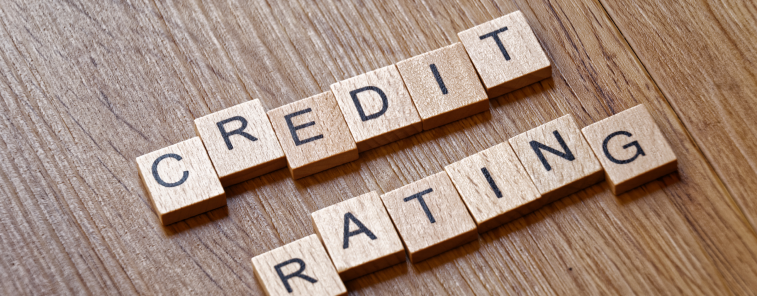
When you apply for new credit cards or auto loans, you don’t have to wait days or weeks for a verdict on your credit. Instead, you find out almost instantly if you’ve been approved.
It’s a very different story when you submit a home mortgage application. Taking out a home loan will mean borrowing at least $100,000 and usually a lot more than that since the median home price in America is now over $300,000. Most lenders want to be entirely sure you will be able to repay that enormous amount of money.
Therefore, they go through your personal finances and employment history with a fine-toothed comb before approving your mortgage loan. As a result, final loan approval may not come until very late in the home buying process, only days before you’re ready to close on your new house.
First-time home buyers who are new to the mortgage process (and if you are, head over to our checklist for buying a house) shouldn’t panic, though. One metric matters more than any other when lenders evaluate your creditworthiness – and if you score high on it, you’ll almost always get your mortgage.
If you haven’t guessed, that metric is your credit score (also called a FICO score because the Fair Isaac Corporation created the scale). And you’re entitled to see it even before you begin house hunting.
Explaining Credit Scores
It would be nice if a single organization reported your credit score, and there was only one number to be concerned with. But, unfortunately, things don’t work that way.
Three major credit bureaus collect and report information on your credit history: Equifax, Experian, and TransUnion. They each have their own scoring models, so the actual credit score number each comes up with will be slightly different. Most mortgage lenders average the three numbers to determine a final score. However, some rely on just one credit bureau’s results.
Since all three bureaus work with the same FICO model, their scores are all reported on the same scale. The lowest possible score is 300, and the highest is 850; the average American’s score is 703. To help you understand what your score generally says about your credit rating, here’s Experian’s scale:
Exceptional credit: 800+
Very good credit: 740-799
Good credit: 670-739
Fair credit: 580-669
Poor credit: 300-579
How do you find out your credit score? You can get a free copy of your credit report once per year by contacting each of the three credit bureaus; that can easily be done online. You can also subscribe to a paid service like myFICO, which gives you continual access to scores. Be careful; some free credit score and credit report services estimate the numbers they give you or use the alternative VantageScore model. Always be sure you’re getting the FICO scores from Experian, Equifax, and TransUnion since that’s what your lender will use.
Many factors are reflected in a credit score, including your previous payment history (whether you pay your bills on time), how many credit accounts you have and how much credit card debt you owe, how many different types of credit you have, credit utilization ratio (it’s a bad sign if you’ve maxed out your credit cards), and how long you’ve had established credit accounts. However, other factors used by banks to consider a mortgage application, like debt-to-income ratio, don’t factor into a FICO score.
Your credit score affects not only whether you’ll be able to get a mortgage but the interest rate you’ll have to pay. For example, suppose you have a poor credit score or a bad credit history (for example, missed payments or loan defaults). In that case, you’ll probably have to clean them up before you can get any home loan. On the other hand, if you have fair or good credit, you’ll likely be able to qualify for a mortgage. But taking steps to achieve a higher credit score will save you money over the life of your loan.
Minimum Credit Score You’ll Need to Get a Mortgage
A first look at the raw statistics aren’t encouraging for those with a poor credit score. According to the Federal Reserve, 90% of mortgages originated in the first three months of 2019 went to applicants with a credit score of 650 or above. Three-quarters of them went to applicants with a score of at least 700.
Don’t despair. Those numbers mean it is possible to get a home loan with lower credit scores – particularly if you apply for the right mortgage programs. If you have a low credit score, you should search for a knowledgeable loan officer or mortgage broker because they can help guide you toward the right loan type.
Here’s what to expect.
With an exceptional, very good, or good credit score of 700+, you’re eligible for the best conventional loans (fixed or adjustable rate mortgages that a government agency doesn’t guarantee).
The higher your score is above 700, the better the mortgage rates you’ll receive. You’ll also be eligible for options such as jumbo loans for expensive homes with loan amounts over $500,000. You may also be able to pay lower rates for private mortgage insurance, lowering your overall mortgage payment.
You will usually have several options if your credit score is between 620 and 699.
What is a Conventional Loan?
A conventional mortgage loan is not backed by the government. The main difference between a conventional loan and other types of mortgages is that a loan is not insured or guaranteed by the government. This means that if the borrower defaults on the loan, the lender is not protected from loss.
There are two types of conventional mortgage loans: conforming and non-conforming. Conforming loans meet specific guidelines set by Fannie Mae and Freddie Mac, two government-sponsored enterprises (GSEs) that purchase mortgages from lenders. Non-conforming loans do not meet these guidelines and are harder to sell on the secondary market.
What is the minimum credit score needed for conventional loans?
The lowest credit score required for a conventional loan is usually 620. However, some lenders may require higher credit scores, such as 680 or 700. The higher your credit score is, the better interest rate you will receive on your loan. Additionally, borrowers with higher credit scores are less likely to default on their loans.
The minimum down payment for a conventional loan is usually 3% to 5%. However, some lenders may require a higher down payment, such as 10%, 20%, or even 25%. The higher your down payment is, the lower your interest rate will be. Additionally, borrowers with a higher down payment are less likely to default on their loans.
What is a Jumbo Loan?
A jumbo loan is a type of mortgage that exceeds the conforming loan limits set by Fannie Mae and Freddie Mac. Jumbo loans are harder to sell on the secondary market because they do not meet these guidelines. As a result, they typically have higher interest rates than conforming loans.
What is the Lowest Credit Score Required for a Jumbo Loan?
The minimum credit score needed for a jumbo loan is usually 680. However, some lenders may require a higher credit score, such as 700 or 720. The higher your credit score is, the better interest rate you will receive on your loan. Additionally, borrowers with higher credit scores are less likely to default on their loans.
Down Payment
The minimum down payment for a jumbo loan is usually 10%. However, some lenders may require a higher down amount, such as 20% or even 25%. The higher your down payment is, the lower your interest rate will be. Additionally, borrowers with a higher down payment are less likely to default on their loans.
What is an FHA Loan?
An FHA loan is a mortgage insured by the Federal Housing Administration. The main difference between an FHA loan and a conventional loan is that an FHA loan requires a lower down payment, usually 3.5%. Additionally, borrowers with credit scores of 580 or higher may be eligible for a 100% financing program.
The lowest score required for an FHA loan is 580. However, some lenders may require a higher credit score, such as 620 or 640. The higher your credit score is, the better interest rate you will receive on your loan. Additionally, borrowers with higher credit scores are less likely to default on their loans.
FHA loans (backed by the Federal Housing Administration) are an excellent option for first-time home buyers or those who are cash poor since they can require to put down as small as 3.5%.
What are USDA Loans?
USDA loans are backed by the United States Department of Agriculture and are available to eligible rural and suburban homeowners. In addition, USDA loans have lower credit score requirements than other mortgage programs, making them a great option for first-time home buyers or those with lower credit scores.
The minimum credit score needed for a USDA loan is 640. However, some lenders may require a higher credit score, such as 680 or 700. The higher your credit score is, the better interest rate you will receive on your loan. Additionally, borrowers with higher credit scores are less likely to default on their loans.
What are VA Loans?
VA loans are backed by the United States Department of Veterans Affairs and are available to eligible military service members, veterans, and their spouses. VA mortgages have lower credit score requirements than other mortgage programs, making them a great option for first-time home buyers or those with lower credit scores.
The minimum credit score requirement for VA loans is 620. However, some lenders may require a higher score, such as 680 or 700. The higher your credit is, the better the interest rate you will receive. Additionally, borrowers with higher scores are less likely to default on their loans.
If your credit report is under 580, lenders will occasionally be able to finance FHA loans (with higher down payments) or VA loans for applicants in the 500-580 range. It’s a long shot, but it never hurts to ask.
Poor credit scores, though, usually mean you’re out of luck when it comes to homeownership – at least until you spend some time working to improve your credit. Those looking to refinance rather than get a new home loan can use these guidelines to evaluate their chances; the cut-off points are usually the same.


